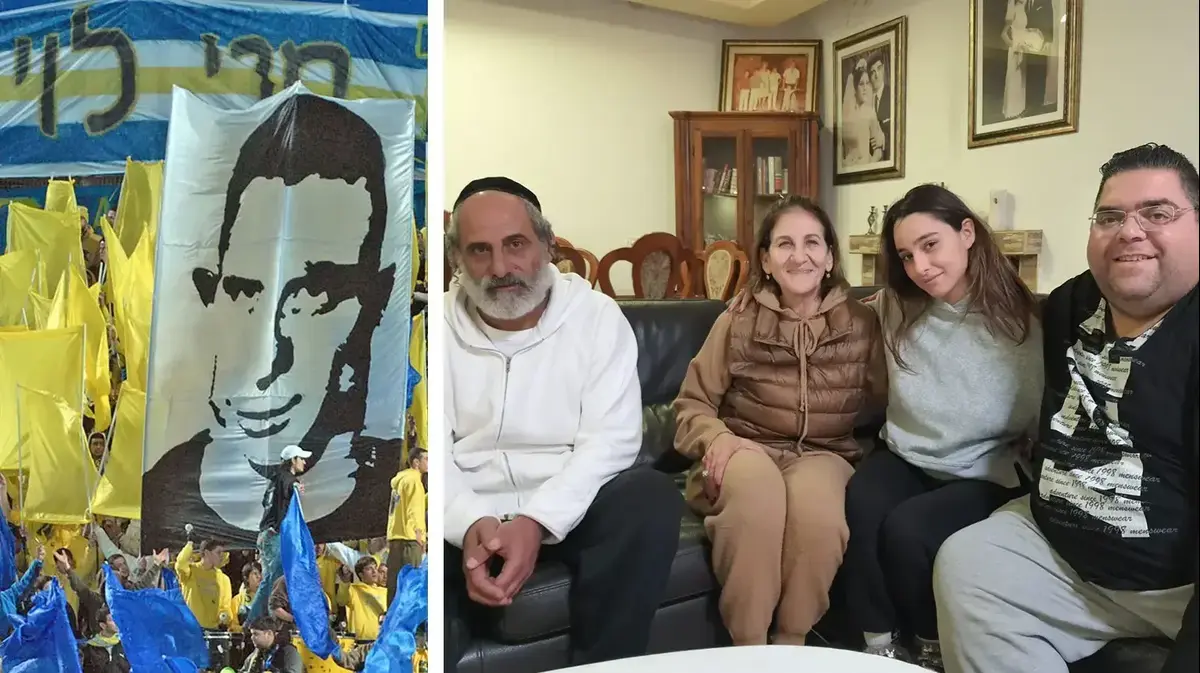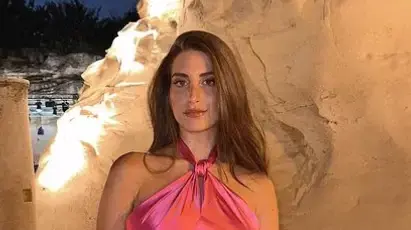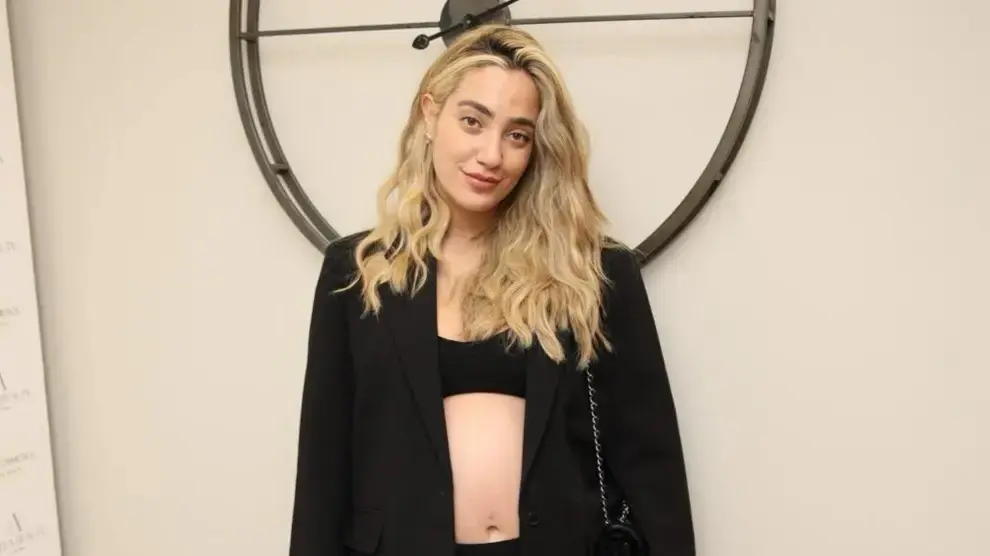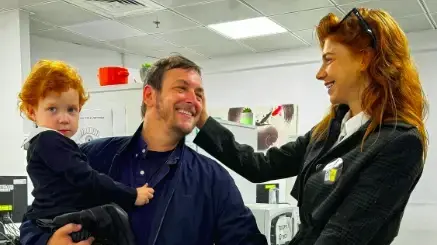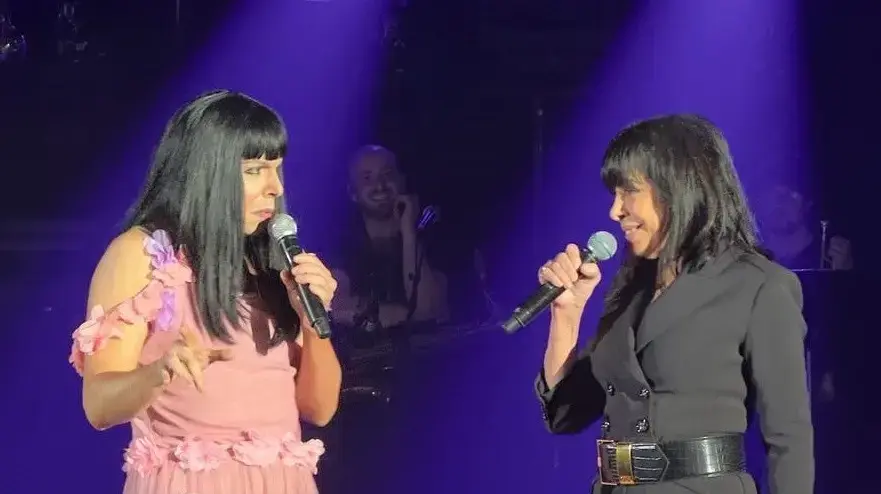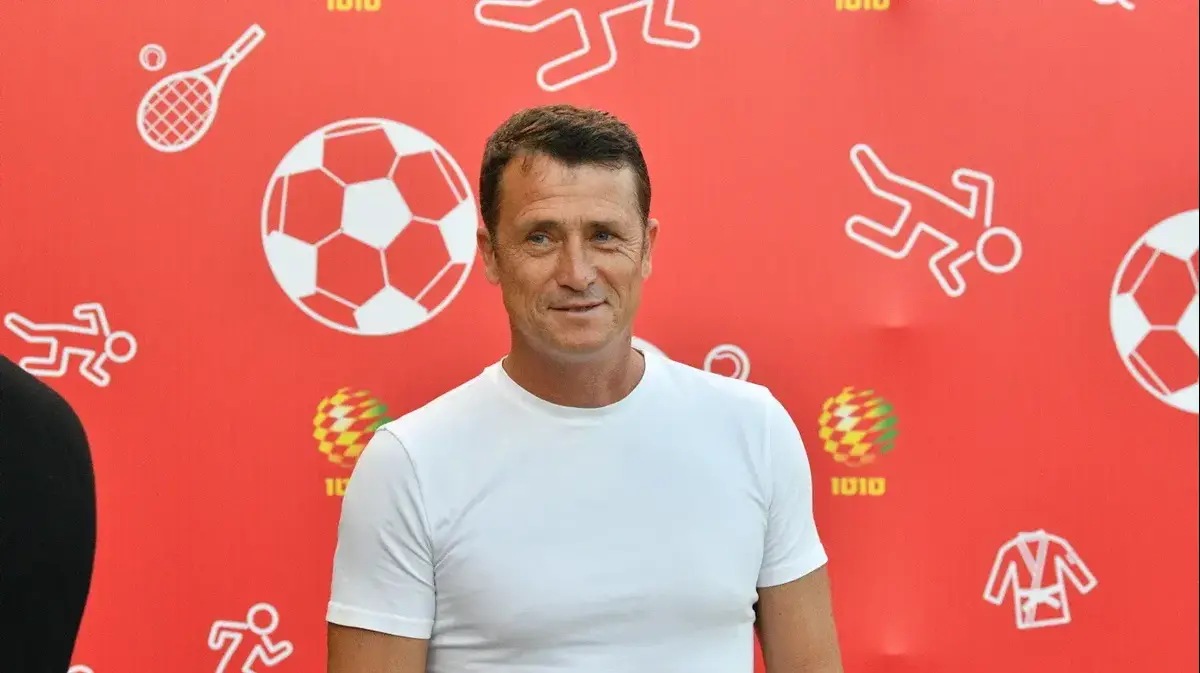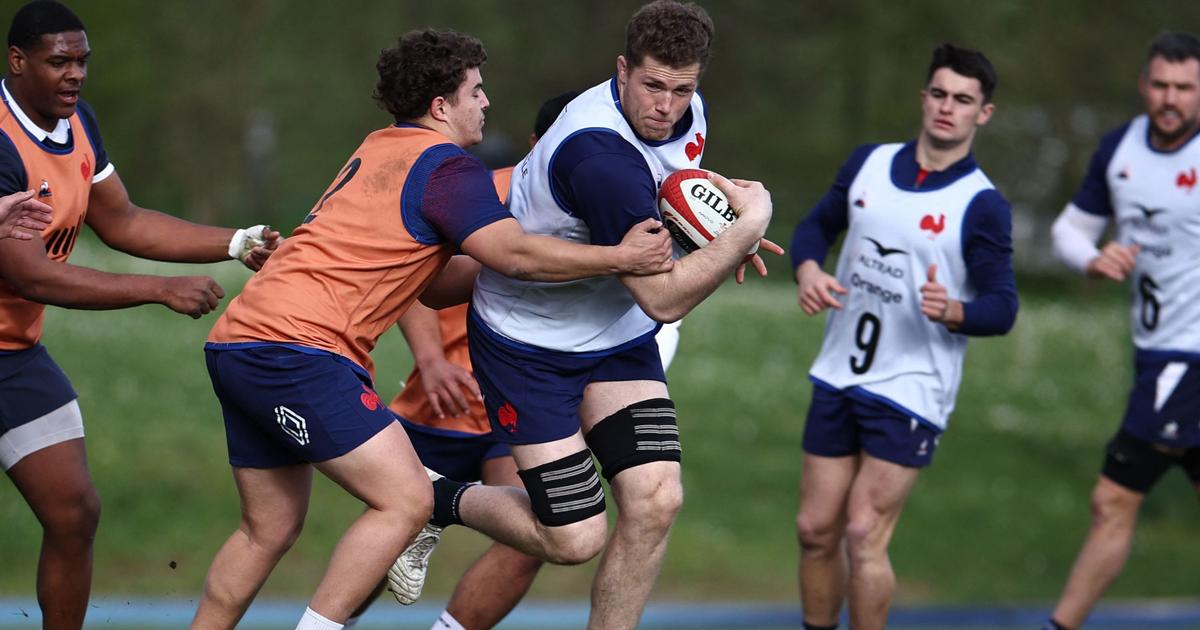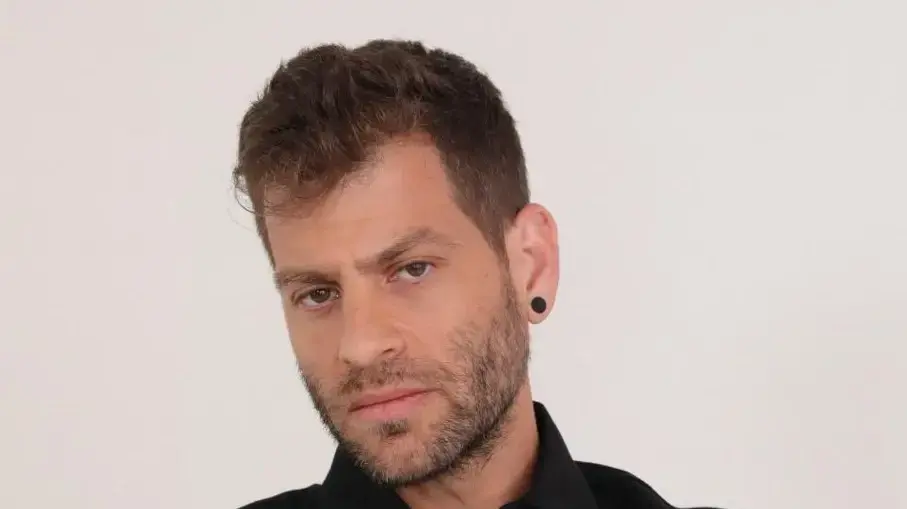"Manny will still call me: 'Mom'"
His uncle who devoted himself to the rehabilitation of his brother, Shir who is responsible for making her uncle happy, Uri who sweeps Maccabi fans and Dalia who says to her son every day: "It will come soon".
20 years to collapse.
Yaniv Tuchman entered Manny Levy's house for a few hours and left with hope and many memories
Yaniv Tuchman
25/01/2022
Tuesday, 25 January 2022, 13:00 Updated: 13:58
Share on Facebook
Share on WhatsApp
Share on Twitter
Share on Email
Share on general
Comments
Comments
At the entrance to the family's house in the Kfar Shalem neighborhood in south Tel Aviv, Dudu Levy receives me.
Tomorrow marks 20 years since the collapse of Manny Levy and the media is showing great interest.
His uncle is already 52. If you want to learn about brotherly devotion, love and giving, you have to sit next to him.
There are not many who can emulate what he has done all these years.
Two years before Shemani fell on the grass in Jerusalem, his uncle decided to repent.
"Manny was happy for me," his uncle recalled.
"It's true that he knew it would be harder for me to get to the games because some of them fall on Saturday, but he was a big fan of the path I chose."
Maccabi Tel Aviv players at Manny Levy's house, with his family (Photo: courtesy of the people photographed)
"I was driving through a mountain miracle on a dangerous road in the dark at high speed. I arrived a little after the ambulance that evacuated him from Teddy. When I entered the trauma room, he was already connected to pipes and instruments. Still with the Maccabi Tel Aviv uniform."
It was at the end of Shabbat on January 26, 2002. "I came home from synagogue and saw Dad at home with a few other family members. It was a little weird to see my dad at home at Manny's game. He never missed. It was probably a very cold Saturday. "And winter, so the TV was open. I took a quick shower and got organized. I joined them to watch."
It was not a big season for Maccabi Tel Aviv, nor for Betar Jerusalem, but a meeting between the two in Teddy was always intriguing, even if there was no top game. "Not a few minutes pass and Manny collapses on the field. We sit at home in front of the screen and watch my brother fall. It is impossible to describe what we felt and the television also stopped filming after a few moments because of the privacy of the individual. I flew out to my van, which to this day I have not sold even though 20 years have passed. A cousin from the neighborhood came running to us and got in the car with me and we flew to Hadassah Ein Kerem. All the way I talked to him upstairs. I asked for only one thing: 'Leave it to me alive. Do not take Manny for me.
"I was driving through a mountain miracle on a dangerous road in the dark at high speed. I arrived a little after the ambulance that evacuated him from Teddy. When I entered the trauma room, I heard the doctors whispering that his brother had arrived. He was already connected to pipes and devices. Still with the Maccabi Tel Aviv uniform."
"Abram would drive Manny crazy all the time" (Photo: Walla! Sport, Yaniv Tuchman)
"We paid $ 21,000 to Bnei Yehuda when Menny was 13 and a half years old to be released to Maccabi Tel Aviv. So he had to deposit a minor quarantine and not play football for a year and Manny did not want to sit outside. At one point Murdoch said: '"
His uncle puts me in the family house. Dalia, Manny's mom, greets me with a hug. She had just finished making soup for lunch. For Manny too. He can eat the food crushed with the help of his close therapist Barak. He's been with Manny for 18 years. Barak is from Nepal. His dream is that his uncle will fly with him once to travel in Nepal. But in the meantime they are both constantly near Manny. The house has long been adapted to Manny's needs. To his bed, to the wheelchair.
The openings are wider so it can be taken for treatments and even to the sea in the summer, something Murdoch the Elder would have loved to do. Murdoch died 11 years ago of cancer, but probably also of a heart attack. Until his death he believed that Manny would stand on his feet and return to us. He harnessed the whole family to make Manny come home. Not to be in a nursing home, at the mercy of caregivers who come and go. For one moment he did not raise his hands in the hope that the son he loved so much would hug him one more time and call him Dad.
On the way to Manny's room pictures on the walls from the time he was the best right-back in the country for his young age.
Someone who has already started talking a lot.
"Abram was driving him crazy all the time," his uncle recalls as we scan one of the photos of Grant and Manny, two years before what happened.
"Abram would have attracted him from the youth to the graduates and would have excited him that he was building on him. Manny only wanted Maccabi Tel Aviv. He started in Bnei Yehuda, here near the house, but he supported Maccabi Tel Aviv with all his heart."
Dalia the mother is smiling.
She remembers how much Manny and her husband Murdoch wanted him to be at Maccabi Tel Aviv, but the Sulmi family did not want to give up the diamond.
"We paid $ 21,000 to Bnei Yehuda when Manny was 13 and a half years old so that they would release him to Maccabi Tel Aviv," she surprises.
"I think I can even find the reception. So, it was impossible to leave a team at a young age. I had to deposit a minor quarantine and not play football for a year and Manny did not want to sit outside. We tried in all sorts of ways, but Bnei Yehuda refused. He said: 'Come on, I pay them as much as they want and release him.' "
From right to left: Uri Mashiach, Shir Levy the niece, Dalia Levy the mother, Dudu Levy the brother (Photo: Yaniv Tuchman)
"At first Nir Levin, who was the coach, did not leave us. Avi Nemani, Shimon Kork, everyone came. Mahran Rady came here once alone with the State Cup."
With us at Uri Mashiach's house.
An angel on earth, Messiah.
Where there is injustice, you will find it.
Where help is needed, he will be the first.
He has been accompanying the family for 20 years.
"We would come to the youth games then," Mashiach recalled.
"Then I also knew Manny and the family. Half an entire village would come to Kiryat Shalom to see Manny in the youth of Maccabi. He started out as a striker. We knew that a player would develop here for many years."
We're standing next to Manny sitting in a wheelchair in his unit at home.
Through the windows, one sees the indoor pool built especially for him.
Treatment pool.
Three times a week he does hydrotherapy there.
Connects to the therapist.
Literally tied to it and they both walk in the water ten pools.
Six feet in each direction.
"Where can I let me walk 60 meters, just in the water," smiles his uncle who sometimes goes down with them to the water at a temperature of 35 degrees.
Dudu and Uri talk to Manny.
Uri also sang Roni Ahiel's 'Come Back to Life'.
Manny smiles.
Responds to Uri.
Lightning the Nepali therapist stays with Manny and we are on our way to the living room. Once again go through all the memories from the days that predicted Manny’s career in Europe. Here's a picture of him a month before what happened to Teddy and here's a framed championship plate brought to him by Mitch Goldhaar. "Who hasn't come here over the years?" Says his uncle. "At first, Nir Levin, who was the coach, did not leave us. Avi Nemani, Shimon Kork, everyone came. Mahran Rady once came here alone with the State Cup. Manny entered all hearts. His case united Jews and Arabs, Maccabi fans, Betar and Hapoel."
After a few minutes of delay near the pictures on the walls, we are in the living room.
Dalia makes tea on this cold day and joins us.
She lost Murdoch, so she has to keep going and become the backbone of the family.
Apart from Manny and his uncle who live with her in the same house, the other two sons also share large units built in the family area so that she is never alone.
She already has eight grandchildren, even one great-grandchild.
His uncle preferred not to get married, although there were plenty of spouses who wanted the relationship with him and were even happy to help him in caring for Manny, but he decided to stay the way he chose rather than establish a relationship.
One of the walls in the family home (Photo: Walla! Sport, Yaniv Tuchman)
Dalia Levy: "My head is only working on him calling me mom. I'm in pain, but I do not let the pain take over me. I do not grieve. If someone tells me I'm poor, I'm really angry."
I ask Dalia what the strongest emotion is leading her after 20 years that her family has become so famous due to the tragic story she carries.
"Every day I say, 'Here it comes. Here it comes.' I wait and pray. I see that he rejoices and laughs when he is reminded of football. I feel he starts talking to me. I am convinced he understands everything."
Dudu reinforces: "Mom talks to him a lot. Manny wants to respond and say something and you feel like here's another moment it will be released in him. We're waiting for Mom to say, Dad to say. I think about him all the time. He can't express what he wants and it hurts me."
From the corona they are kept and inspected Manny a lot. Especially in the first period of the virus, when it was clear that if you became infected there was a great fear that you would not survive it. "When we brought Manny home after more than a year in the hospitals, he had to get all the pills he was taking off," his uncle recalled. "At that time people in Manny's condition were not taken home at all. We took Manny home through a long process in court. HMO objected, various organizations objected and there is also the medical issue. Who takes such responsibility to bring home a person in his condition? We decided to go with it. With all his might because we believed that only at home would he have a chance to recover.
Today, thanks to Manny, there are families who take people home in a nursing home like Manny's. Nursing medical institutions treat pills. Pushing materials that eventually kill the person. When we brought Manny home, one of the doctors at the Levinstein House joined us and accompanied us and today Manny is natural. Except for some additives a bit, it is natural. Not every family can do what we did and it is impossible to blame a family that can not. Not everyone can withstand this burden, but we decided to go for it with all our might and were purposeful. "
Dalia took advantage of the last Saturday that was sunny and took Manny out. She sat next to him for a long time. The grandchildren sang songs to him and talked to him." Manny is part of the house . "An integral part of everyone's life here," she says. "On the grandchildren's birthdays, in everything, he is with them all the time."
I ask her why she misses: "I do not sit and cry about what happened," she clarifies. "I do not sit every day and say why it happened to him or why he did not become a great footballer or why he did not get married and bring me grandchildren. Absolutely not. "I do not let the pain take over me. I do not grieve. If someone tells me I am poor, I will be really angry. I am not poor." Of Murdoch she says: "I am sure the pain and sadness made him sick and go out of the world."
His uncle reinforces: "My dad was a strong guy who was not willing to show anything. Even when he was told he was sick, he hid things. He was total about Manny. He left everything to be in the game with Manny. That's why to this day I ask myself how he came out. "In that particular game in Teddy, he was not there. In his head he wanted Shemani to be a player for the Israeli national team. Only the team's emblem interested him. Until the last minute, he believed that Shemani would stand on his own two feet."
Dalia: "In his last days, Murdoch did not ask for anything for himself. He kept saying that he wanted me to get up on his feet. He only thought about that. He did not talk about his illness or complain."
Maccabi Tel Aviv fans with a deployment flag in honor of Manny Levy (Photo: Berni Ardov)
Messiah, who saw the development up close and the change the family went through, mentions: "In the first two years it was very difficult for us as Maccabi fans to see this suffering. Dalia did not want to talk about anything. She did not want to leave home. "To do here over the years parties for Manny's birthday, lighting candles on Hanukkah. We did not give it up every year and I also wanted the communication systems to be with us and every editor and reporter received materials to publish because we wanted Manny to be with everyone all the time."
Dalia does not digest that 20 years have passed. "We went through a lot during this time. My granddaughter got married in the United States in Miami before the Corona and how hard it was for me to leave Manny and fly. Everyone asked and talked to me and I had a very hard time. In the end I flew. I constantly have to overcome these obstacles and overcome. The head so that the pain does not take over. "
The love they have received all these years from every corner of the country has greatly helped them.
Dalia: "They did not leave me alone. A girl named Ofra Asraf from Yavneh was with me as a fan from day one. When Manny started smiling, it was thanks to her. She went with us from day one. I have no words to thank her. She was 31 when it happened and today she is already "We went to her wedding and we felt like Manny was getting married."
Dudu: "Maccabi Tel Aviv fans who love and remember it is natural, but if you know how many people from the sector were in contact with us, some people who experienced something similar wanted to hear and know how to deal. Israel showed a lot of emotion for the story and it helped us. "Every summer we get two subscriptions to the team games. They keep in touch with us."
"Manny started smiling thanks to her."
Ofra Asraf (Photo: Courtesy of the photographed)
Joining the conversation is Shir, Manny's niece.
She was 4 when it happened.
Shir is the dynamo in the house among the nephews.
"I have a picture with Manny when I was a girl he hugged me and I will never forget it in my life. Manny loved me more than all his nephews. I remember things. We were my brother and I's birthday when it happened 20 years ago. My mother left us and went to the hospital. The other grandmother would keep an eye on us all the time because my mother was with my father, Manny's brother, in the hospital
.
All these years I dance and sing to him.
I tell him I enlisted and took a trip and he wants to express himself and he shows me that he understands.
I tell Manny everything.
I share with him everything I go through.
My boyfriend is Guy and my dad is Guy and I say this to Manny and we both laugh.
I love football and can see the excerpts we have from the period that Manny played.
I shed a lot of tears from that. "
His uncle listens to things and smiles.
"I accept everything with love. As Rebbe Nachman says: 'There is no despair in the world at all.'
sport
Israeli soccer
Super League
Tags
Manny Levy
Maccabi Tel Aviv in football

